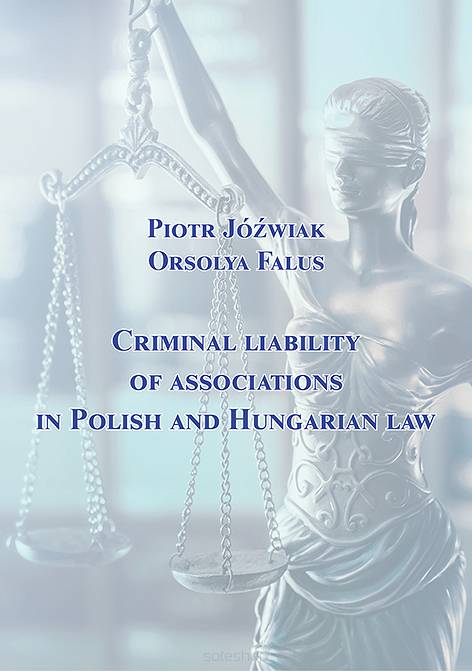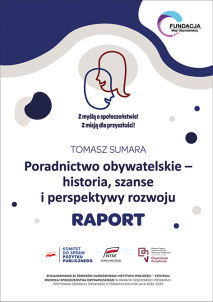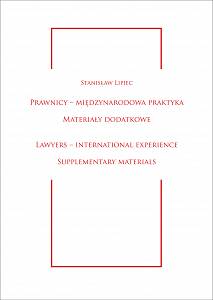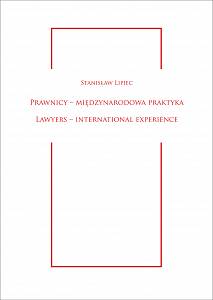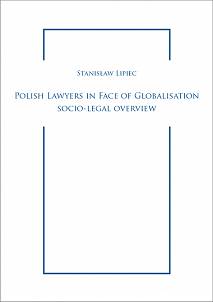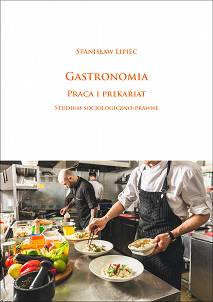Piotr Jóźwiak, Orsolya Falus, Criminal liability of associations in Polish and Hungarian law
- Autor: Jóźwiak Piotr, Falus Orsolya
-
Dostępność:
Jest
(9 egz.)
- egz.
- Cena netto: 33,33 zł 35,00 zł
Wydanie I
Poznań 2022
Format 21x14,5 cm
ISBN 978-83-67287-34-0
DOI 10.48226/978-83-67287-34-0
ss. 96
język: angielski
Nowadays in Europe there is a debate related to the necessity of creating legal regulations which could also hold collective entities, especially legal persons, accountable for their actions in terms of criminal liability. However, there is a lack of consistent regulations in this respect. Meanwhile, it occurs that one of the first scholars in Europe to deal with this subject was a Hungarian professor Ervin Hacker, who as early as in 1922 published a book on this subject entitled: The criminal capacity and liability of associations: a study from the field of substantive criminal law. In the same year, a small brochure written by this professor on the same issue was released (The criminal liability and capacity of associations). Our book aims at promoting professor Hacker and his ideas, therefore we would like to undertake the task of translating his brochure into English. Translating a book of over 200 pages is not feasible, yet translating a brochure of 15 pages seems purposeful. On the one hand, it will allow us to present that the ideas which currently all Europe is pondering over were present in Hungary as early as at the beginning of the 20th century. At the same time (i.e. at the beginning of 20th century) Juliusz Makarewicz, a prominent Polish professor of criminal law, also wrote about this matter. In his book written in German, included in the European criminal law canon, stated that it was possible, considering the contemporary regulations in Poland, to execute criminal liability of legal persons. He also believed that such a liability should not be excluded by lawyers, since it is feasible to introduce it through particular legal regulations. Excellent works on the criminal liability of associations, which are still relevant today, were also written in the interwar period by Helena Wiewiórska, the first woman in Poland who become an advocate.
Therefore, we strongly believe it is worth showing that in both Poland and Hungary the solutions which many lawyers in Europe currently deliberate on, were investigated a long time ago (see more Toth, 2019, p. 178-179);
One of the purposes of this book is to bring to recollection the views of the Polish and Hungarian lawyers who wrote about the criminal liability of associations more than a hundred years ago. We endeavour to demonstrate that the views expressed by Professor Ervin Hacker, Professor Juliusz Makarewicz, and by Helena Wiewiórska over a century ago have lost nothing of their relevance over the course of time and can still provide an excellent basis for formulating a whole number of de lege ferenda proposals addressed to national legislators. This is the main thesis of this work. In addition to a brief recapitulation of the views expressed in the interwar period by some prominent Polish and Hungarian theorists of criminal law (Ervin Hacker, Juliusz Makarewicz, Helena Wiewiórska), the book contains an English translation of a 1922 brochure by Professor Ervin Hacker on the criminal liability and criminal capacity of associations. We believe that his work can be an excellent source for academic research on the criminal liability of associations.
Publikacja dostępna online w formacie pdf w poniższej zakładce: Załączniki
Załączniki
| Zobacz | Opis | Pobierz |
|---|---|---|
 piotr-jozwiak-orsolya-falus-criminal-liability-of-associations-in-polish-and-hungarian-law-book-online.pdf (2.4 MB) piotr-jozwiak-orsolya-falus-criminal-liability-of-associations-in-polish-and-hungarian-law-book-online.pdf (2.4 MB) |
||
 spis-tresci.pdf (192.4 KB) spis-tresci.pdf (192.4 KB) |
